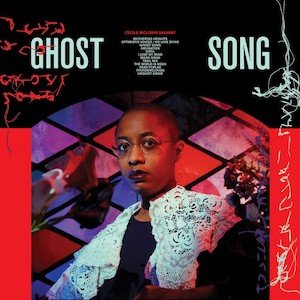Label: Nonesuch Records, 2025
Personnel - Cecile McLorin Salvant: vocals, Garage Band,
The talent of American singer Cecile McLorin Salvant is undeniable, as proven by remarkable albums such as Dreams and Daggers (2017), The Window (2018), and especially Ghost Song (2022). Her new outing, Oh Snap, is her most eclectic and personal work to date—but just didn’t work for me. The album consists of 12 originals—most of them initially conceived on Garage Band, AutoTune, and Logic with layers of found sounds—and one cover: a verse from the Commodores’ 1977 hit “Brick House”.
Salvant’s wealth of ideas leads to several unexpected changes of direction, yet the strongest moments remain those most deeply rooted in jazz. “Anything But Now” is a delicious highlight, addressing the nightmare of the Internet and cell phones through double-time swing and a memorable finale. “What Does Blue Mean to You”, inspired by novelist Toni Morrison’s archive, features Salvant at her best, backed by her impeccable jazz quartet—bassist Yasushi Nakamura delivers a beautifully sluggish solo, pianist Sullivan Fortner closes with a deconstructed stride, and drummer Kyle Poole propels the rhythm with firm ride-cymbal precision. There’s also “Expanse”, a lush jazz ballad.
The opener, “I Am a Volcano”, ventures into alternative R&B with funky synth chords, electronics, and a hefty backbeat, while “Take This Stone”, featuring acoustic guitar and guest vocals by singer-songwriters June McDoom and Kate Davis, dives into the pop-country realm.
The title track, “Oh Snap”, driven by an Afro-percussive flow, veers boldly from ambient textures to EDM, infused with a distinct Kate Bush vibe. “Thank You”, which momentarily recalls Bush’s “Wuthering Heights”, is a fine pop ballad written for Salvant’s mother and sister.
However, the sapless dance-pop numbers, “Eureka” and “A Little Bit More”, feel disconnected from the rest and would have been better left out. Oh Snap is a confessional collection but it doesn’t align with my stylistic preferences. I found it uneven and unexceptional, though Salvant’s extraordinary voice continues to inspire confidence in her artistic evolution.
Favorite Tracks:
02 - Anything But Now ► 04 - What Does Blue Mean to You






